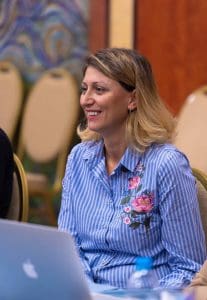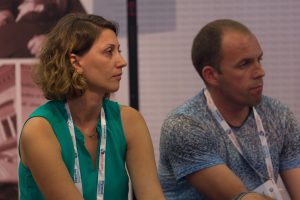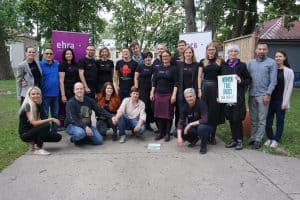The Eurasian Regional Consortium – Eurasian Harm Reduction Association (EHRA), Eurasian Coalition on Male Health (ECOM), and Eurasian Women’s Network on AIDS – within the open call has identified 4 national partners to develop and implement the CHASE THE VIRUS, NOT PEOPLE! campaign at the national level in the countries of the Eastern Europe and Central Asia region.
The winners of the tender: partnership of the Community Engagement, Human Rights and Gender Equality Working group and Real World, Real People NGO (Armenia), Public Association “Legal Center “Zan Talaby” (Kazakhstan), Public Organization for the fight against AIDS (Azerbaijan), «Parni PLUS» (Russia).
The assignment is implemented in the framework of the Eurasian Regional Consortium project “Thinking outside the box: overcoming challenges in community advocacy for sustainable and high-quality HIV services”, funded by the Robert Carr Fund for civil society networks. The national campaigns will be developed and implemented by the end of 2019.

 Now, thanks to social media, finding information is not a problem, but then you could only look through mailing lists and websites. Nothing else. Needless to say, I did not know about any organizations working in harm reduction in Georgia. I met them later, through different conferences and international networking events. That was my first experience.
Now, thanks to social media, finding information is not a problem, but then you could only look through mailing lists and websites. Nothing else. Needless to say, I did not know about any organizations working in harm reduction in Georgia. I met them later, through different conferences and international networking events. That was my first experience. – I have an extensive experience of working with EHRA. Our roads often crossed, sometimes even not within a particular project, but within different initiatives. There are many creative ideas in our region. I like it when you have some idea at your country level and EHRA already develops the same idea at the regional level.
– I have an extensive experience of working with EHRA. Our roads often crossed, sometimes even not within a particular project, but within different initiatives. There are many creative ideas in our region. I like it when you have some idea at your country level and EHRA already develops the same idea at the regional level. – This campaign showed itself, its goal is vital. Regional campaigns are very important in general, especially in the context of countries transitioning to domestic funding. The only thing I would consider is that, when we develop advocacy messages, we should try to make them clear not only to us, not only to those who work in harm reduction, but also to people who are, let’s say, out of this topic: economists, lawyers, politicians, etc. Everyone! This is what I would consider in future. Unfortunately, there are very few examples in countries or regions, where the message would cover all the population, touching the hearts of various people.
– This campaign showed itself, its goal is vital. Regional campaigns are very important in general, especially in the context of countries transitioning to domestic funding. The only thing I would consider is that, when we develop advocacy messages, we should try to make them clear not only to us, not only to those who work in harm reduction, but also to people who are, let’s say, out of this topic: economists, lawyers, politicians, etc. Everyone! This is what I would consider in future. Unfortunately, there are very few examples in countries or regions, where the message would cover all the population, touching the hearts of various people. As for our next mission, I believe that it should be very ambitious, even cosmic! When you go beyond what you think is real, you achieve more. In my work, I often follow the rule: “Plan as much as possible to get what you want.”
As for our next mission, I believe that it should be very ambitious, even cosmic! When you go beyond what you think is real, you achieve more. In my work, I often follow the rule: “Plan as much as possible to get what you want.” – (Laughing) I have none! Working at the weekend and exchanging emails with colleagues at 3 a.m. is my usual routine. But I am lucky: I spend my whole life where I want to be, I wake up in the morning – and I am happy to go to work, meet new people, learn new things, and do what brings me moral satisfaction. My work is more than just complying with my job description.
– (Laughing) I have none! Working at the weekend and exchanging emails with colleagues at 3 a.m. is my usual routine. But I am lucky: I spend my whole life where I want to be, I wake up in the morning – and I am happy to go to work, meet new people, learn new things, and do what brings me moral satisfaction. My work is more than just complying with my job description. Looking at me attentively, Stephen went on: “My country has done very well with offering OST (methadone, buprenorphine) but everyone knows more MUST be done. People need easy access and doses that are suitable to them. There will be a small ‘Heroin Assisted Treatment’ program beginning in September 2019. and in time, if it is allowed to grow, it will change so many lives for the better; IT WILL SAVE LIVES.”
Looking at me attentively, Stephen went on: “My country has done very well with offering OST (methadone, buprenorphine) but everyone knows more MUST be done. People need easy access and doses that are suitable to them. There will be a small ‘Heroin Assisted Treatment’ program beginning in September 2019. and in time, if it is allowed to grow, it will change so many lives for the better; IT WILL SAVE LIVES.” Railway station. Stephen and Nicole’s birthday present – Scottish red and green check scarf – kept me warm. Standing at the platform, we gave each other goodbye hugs, listening to our heartbeats. Making myself comfortable in my seat with a book, I realized that my eyes were constantly coming back to the yellow bracelet. The sounds of the train, its rhythmic swing combined with polite and quiet travel companions – it all gave me a chance to think why it happened like this: I had 30 years of opoiod use behind me, but Naloxone became part of the things I always consciously carry with me only three days ago.
Railway station. Stephen and Nicole’s birthday present – Scottish red and green check scarf – kept me warm. Standing at the platform, we gave each other goodbye hugs, listening to our heartbeats. Making myself comfortable in my seat with a book, I realized that my eyes were constantly coming back to the yellow bracelet. The sounds of the train, its rhythmic swing combined with polite and quiet travel companions – it all gave me a chance to think why it happened like this: I had 30 years of opoiod use behind me, but Naloxone became part of the things I always consciously carry with me only three days ago. The yellow box, which came to me from Scotland, has already renewed its stock of Naloxone and now has other helpful things as well. The last thing I got from a friend of mine were tablets, which help in case of MDMA overdose. In the center, there is a syringe with Naloxone.
The yellow box, which came to me from Scotland, has already renewed its stock of Naloxone and now has other helpful things as well. The last thing I got from a friend of mine were tablets, which help in case of MDMA overdose. In the center, there is a syringe with Naloxone.